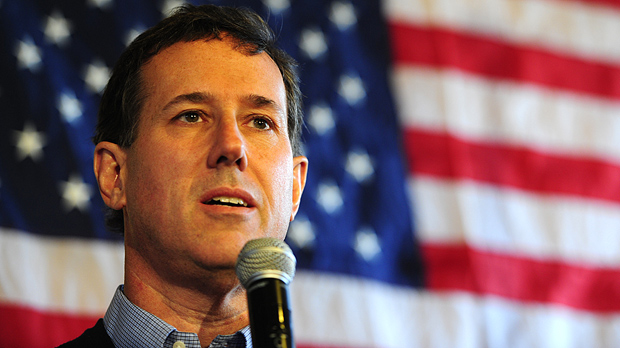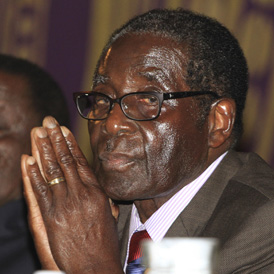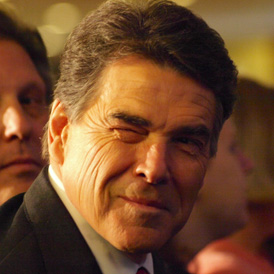A tale of two democracies: New Hampshire to Zimbabwe
Nine caucuses and five presidents? Writing for Channel 4 News, journalist Tawanda Kanhema tracks the US presidential caucuses alongside Zimbabwe’s treacherous path to democracy.

US-based Zimbabwean journalist Tawanda Kanhema is covering his first US presidential election campaign, having witnessed and reported on his own country’s democratic processes. He compares and contrasts the two countries.
As contenders for the Republican Party‘s ticket against President Barack Obama refine their campaign strategies for the New Hampshire primary, 87-year-old President Robert Mugabe of Zimbabwe, a pre-Reagan era statesman, basks in the glory of another unopposed confirmation as his party’s candidate in a yet-to-be confirmed presidential election.
Mugabe, one of the few surviving members of southern Africa’s liberation elite, along with Angolan President Jose Eduardo Dos Santos, came to power in the sunset of the Jimmy Carter presidency, and presidential elections in Zimbabwe thus far have only served as cosmetic surgery, renewing regime legitimacy without results.
Back in Story County, Iowa, this week, “Reagan” was the “god term” in campaign speeches by Republican candidates seeking to position themselves in the centre of the conservative party’s wide ideological spectrum.
More from Channel 4 News: Romney heads for victory - again?
As seen in the case of former Pennsylvania senator Rick Santorum, memories of the Reagan era have been purified since his death in 2004 to the extent that attacking Reagan is considered “Republican sacrilege”.
Reagan’s place in Republican political rhetoric is due to his role in instituting profound changes in economic policy, and partly due to the fact that, in the minds of many Americans, his presidency is far enough back in time for the demerits of his legacy to shine, and yet close enough for candidates to play up his achievements and endear voters.
Nine caucuses and five presidents later
The cheers that reverberated through Harare’s suburbs at Zimbabwe’s independence from Britain in 1980 echoed victory celebrations Iowa, where George HW Bush had just won the Iowa caucuses, widely seen as a fairly accurate predictor of who goes to the White House.
Over the past 30 years, Iowa has held nine caucuses and sent five presidents to the White House, while Mugabe has watched an entire constellation of some of Zimbabwe’s brightest politicians spiral into an event horizon of unbridled state repression and electoral fraud.
In both cases, the majority had spoken, and the power of their voices had yielded results. Mugabe had won the elections, beating Joshua Nkomo, “Father Zimbabwe”, then leader of the opposition Zimbabwe Africa People’s Union (ZAPU). Nkomo would be driven into exile, and thousands of his supporters killed before he was integrated into government through a Unity Accord in 1987.
Kelsie Haffner, a 20-year-old student at Iowa State University, was one of the 18 Iowans who showed up the Story Country’s Precinct 3 caucus on Tuesday night to vote for Ron Paul. Haffner attended one of Ron Paul’s campaign events at the Iowa State University, a liberal enclave in the predominantly conservative state.
“I am voting for Romney because I agree with his stance that we shouldn’t be the police force of the world,” Haffner said.
The university is a political institution, and students at both Iowa State University and Drake University return to their campuses in droves during Democratic Party caucuses, which are held on 3 January during the school break every four years.
Similarly, the University of Zimbabwe, Harare Polytechnic and Midlands State University are considered the birthplace and heartbeat of Zimbabwe’s opposition movement, but they have suffered multiple police raids, arrests and prolonged periods of suspension of classes as the Mugabe regime tries silence student politics.
America’s university campuses are notoriously liberal, and Dr Marilyn Yaquinto, Pulitzer Prize winning journalist who covered the Iowa caucuses for the Truman Media Network observed that they play a major role in influencing election outcomes, especially when they occur within conservative constituencies. As a result, candidates embrace rather than attempt to purge them.

From Story County to Harare
In Zimbabwe, a pre-Reagan era president is the present, and consequently, his achievements lie buried under multiple layers of failed policies, rigged elections, human rights abuses and a failed economy. Mugabe inherited a strong economy and built schools and hospitals in the first 10 years of his presidency, before running the economy into the ground, sparking a mass exodus of teachers and doctors that left the public service sector paralysed.
Over the past 30 years, Iowa has held nine caucuses and sent five presidents to the White House, while Mugabe has watched an entire constellation of some of Zimbabwe’s brightest politicians spiral into an event horizon of unbridled state repression and electoral fraud.
Fired with ambition and grassroots support, Mugabe’s opponents typically start off as vibrant opposition leaders, contest against him and his heavily partisan state apparatus and then either join his ranks or retire from politics altogether out of frustration, intimidation or death.
This cycle of dominant party politics is about to end, as Mugabe, for the first time since 1980, approaches an election with the opposition as a significant part of his government and his arch rival, Morgan Tsvangirai, as prime minister with access to state resources.
In addition to his opponents, Mugabe now has to contend against time and ensure the survival of his party as well as the security of private assets amassed over the last three decades.

Legitimacy through processes
For Mugabe, a 1980 victory was an anointment as president for life, and wherever the constitution, processes or the people stood in his way, they had to be moved. The institutions and processes put into place to ensure Zimbabwe’s transition to a fully-fledged democracy were discarded, creating a conducive environment for three decades of dominant power politics.
Zimbabwe’s constitution has been amended 19 times since 1980, ensuring the durability of the Mugabe regime while at the same time weakening civil society and the media. During the same period, the US constitution has been amended only once in 1992, and even then, only to enact Amendment 27, proposed in 1789.
Santorum, a dark horse until the eve of this week’s caucuses, caused a major upset when he beat the mainstream Republican contenders to emerge as runner-up to Mitt Romney in the Iowa caucuses. Santorum’s success will depend on how he brands himself beginning today, as he begins to draw larger crowds and face more scrutiny.
Read more: Jobs, debt and the war dominate Iowa caucus
The Iowa caucuses are a fairly accurate predictor of who goes to the White House, but as history has shown, they are not infallible. George HW Bush won Iowa in 1980, when Mugabe became president, but lost the race for the Republican party ticket to Ronald Reagan, who went on to become president with Bush as his deputy in 1981.
Even when they fail to predict who gets the Republican ticket, caucuses are a considerably accurate barometer of which candidates the party and the nominee will pick for vice-president.
Most importantly, caucuses are in themselves an institution that confers legitimacy on the political process and consequently, on the candidates, where for Mugabe, a unanimous confirmation means that none of the five powerful military generals is opposed to his candidacy.
Tawanda Kanhema is an investigative journalist and photographer currently based in the US.




